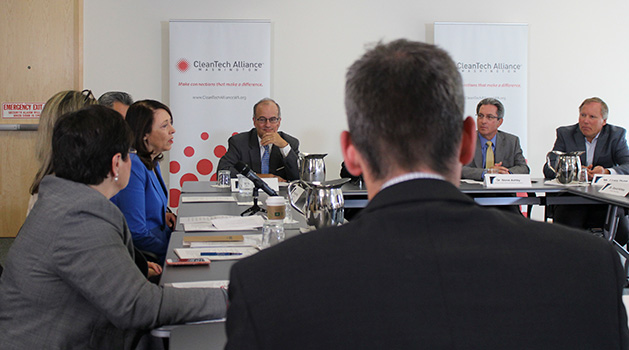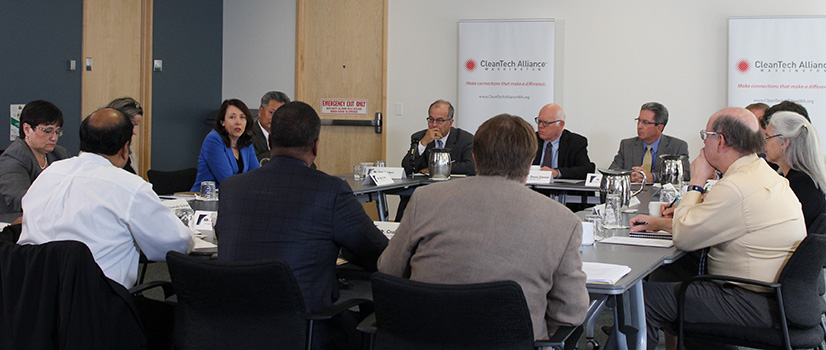|
Washington State business, government and academic leaders held a roundtable on Friday, August 25, to call for continued federal investment in the vital energy research. CleanTech Alliance hosted the forum, which featured Senator Maria Cantwell and Utilities and Transportation Commission Chair David Danner. Attendees included:
Participants highlighted the critical role energy plays in creating jobs and supporting the Washington State and broader Northwest region economy, as well as the need to continue to support and perfect new technologies in order to remain competitive. Much of the conversation underscored the importance of Department of Energy and other federal research funding to this effort. In 2016, the Department of Energy (DOE) provided more than $3 billion in funding throughout the state, contributing .69 percent of the state’s GDP. The future of that funding is now in question following proposed DOE budget cuts by the Trump Administration. “Today’s meeting demonstrates the broad consensus that exists around the importance and impact of federal energy research funding in Washington State,” said J. Thomas Ranken, President & CEO of the CleanTech Alliance. “The energy sector is growing rapidly and it is crucial that our policies do everything to encourage that growth. We know how to put Americans to work in the new energy economy, we just have to make sure that the funding and support are there. We look forward to continuing this conversation as Congress considers the Department of Energy’s budget this fall.” DOE has played a critical role in bringing new technology ideas to the private sector. DOE’s Pacific Northwest National Lab (PNNL) is not only an important partner to local energy companies, but it’s also a critical part of the local and state economy. In FY2016, PNNL contributed $24.5 million in state and local taxes and $404 million to state payrolls. More than 100 businesses have roots with PNNL, 69 of which employ 2,326 people in the state. PNNL itself employs more than 4,000 people. DOE funding has also helped Washington State businesses make breakthrough technologies economically viable. For example, thanks to ARPA-E funding, Battery Informatics is developing next-generation battery management systems, based on technologies developed at the University of Washington, to extend the life of electric vehicle batteries. Helion Energy is also developing a prototype that will explore a potential low-cost path to fusion for a simplified reactor design.
Washington State residents are also impacted by the cost-saving innovations generated by energy research. The U.S. Department of Energy’s investments in energy innovation have helped to bring down the cost of solar, making it more accessible for regular citizens. While there is broad public support for energy funding and innovation, the United States must do more to prioritize energy and technology research. The participants agreed that Congress needs to continue investing in energy innovations that create jobs, drive international competitiveness, protect our national security and reduce costs for consumers. |
|


